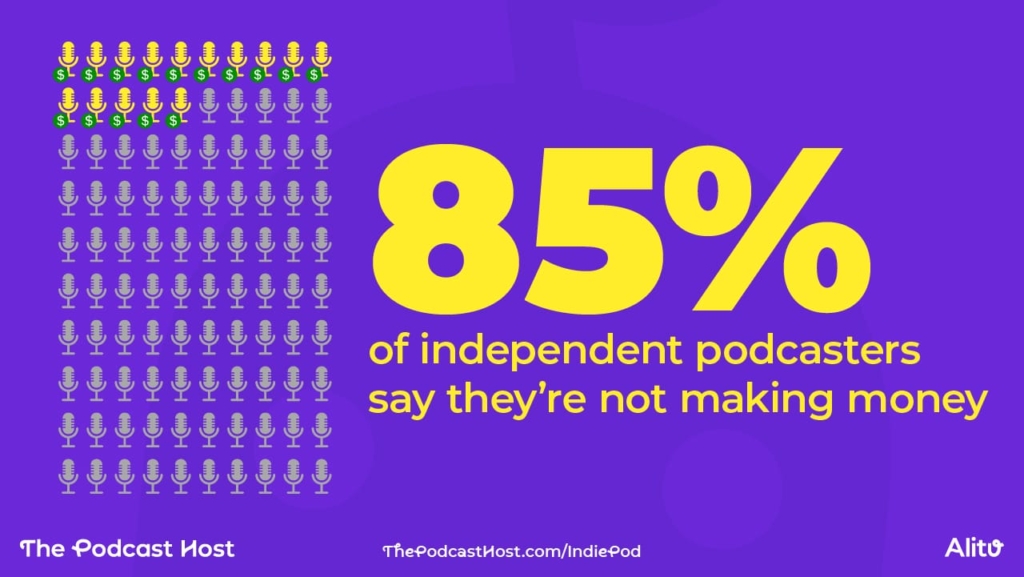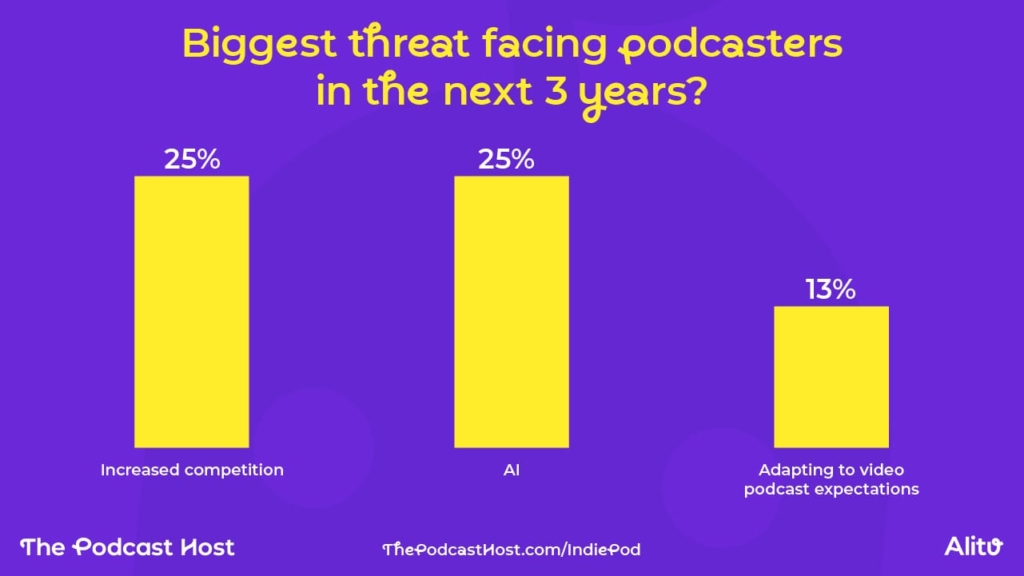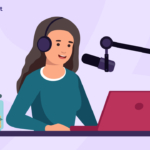Survey Data: Is There A Gender Gap in Podcasting Burnout?
If you’re subscribed to any of our mailing lists, it’s likely you’ve heard us talking about our 2025 Independent Podcaster Survey. You might’ve even taken part in the survey yourself (and thank you if you did)!
We’re stoked that 558 independent podcasters responded to the survey. This has given us a great snapshot of the workflows, wins and challenges that podcasters are experiencing in the current landscape.
We’ll be publishing a full report of the survey findings in the coming weeks (sign up to Podcraft Perspectives to get it straight to your inbox). But in the meantime, I wanted to share an interesting data story that has emerged from the survey results.
When we analysed the survey results, we weren’t looking for gender differences. But a pattern revealed itself that we couldn’t ignore. The results showed that podcast burnout is disproportionately impacting female respondents compared to males.
First of all, the good news. When we asked respondents what, if anything, had ever made them consider quitting their show, a substantial 41% said they’d never even considered giving up.
But of course, it’s not all rosy – 22% said they had considered quitting their podcast due to burnout.
When we separated the data by gender, the percentage of respondents reporting burnout jumped up to 28% for women, and down to 17% for men.
One female respondent said:
“I love podcasting but burn out and motivation is a real thing.”
To be clear, I’m not here to speculate on why this gendered pattern exists. That’s not what these kinds of surveys are for. But what I will do is present the data, along with some comments from podcasters who took the survey, and you can take from it what you will.
The Gender Gap in Podcasting: Understanding Barriers
It wasn’t just the question about reasons for quitting that showed a gender gap related to podcasting barriers. Here are a few patterns we saw elsewhere in the data regarding how female respondents told us they’re experiencing podcast-related challenges at the moment.
They’re less likely to be reaching their podcasting goals
When we asked respondents if they’re achieving their podcasting goals, there was a notable difference between how male and female creators were achieving what they want to achieve.
Only 15% of women who answered this question said they were achieving most or all of their goals vs 24% of male respondents.
On the other end of the scale, 13% of women who took the survey told us they weren’t achieving any of their goals. Only 7% of men chose this option.
They’re more likely to bring in support
When we asked respondents if they outsource any additional support when creating their show, 54% of men said they do everything themselves, compared to 49% of women.
When I looked specifically at which areas people outsource, I noticed that 28% of female respondents said they hire an editor, producer or audio engineer. Only 16% of males reported outsourcing help in this area.
One female respondent commented:
“I enjoy my podcast…but sure wish I could be more effective with growth and engagement. I grow weary of doing it myself.”
They’re finding it harder to monetise their show
One thing that’s very clear from the survey is that monetisation is no walk in the park for creators in 2025. 85% of the creators who took our survey reported not making any money from their podcast.

Monetisation was also the second-biggest podcasting challenge people cited, after growing an audience.
And when I separated the data out by gender, there was a notable difference there too. The percentage of those who said monetisation was their biggest challenge jumped up to 49% for females and dropped to 34% amongst males.
They’re more likely to see video as a barrier
When we asked respondents what they saw as the biggest threat to podcasting in the next three years, the most popular options were ‘increased competition’ and ‘AI’. But #3 on the threat list was adapting to video expectations.

Again, when I broke down the data by gender, I noticed another gap. Of those who said adapting to video expectations was the biggest threat to podcasters, 53% were women vs just 37% of men.
This is also reflected in the gender split of who’s publishing video and who isn’t. Only 25% of female respondents said they publish full video episodes of their podcast, while 32% male respondents do.
When I compared this data to the indiepod survey we did back in 2022, it suggested that the gap is growing slightly too. Male respondents were 3% more likely to have a video component in the 2022 survey and 7% more likely in the 2025 survey.
One female respondent commented:
“The shift to video is a threat because it is setting an expectation to have video – among advertisers and listeners.”
And another:
“Would love to see a delineation between a podcast and video, which feels like that’s a TV show vs. audio. Lots of pressure is placed on doing video for podcasts now.”
Again, I’m not going to make any assumptions about why this gender gap might exist in video podcasting – I’m simply presenting the results of the survey. Also, Lindsay already did a great job of exploring the question of whether video is increasing the gender divide in podcasting in this article.
The Next Wave of Female Podcasters Is Coming
All things considered, let’s end on a positive note. When I looked at the demographics of new podcasters who took the survey (they were excluded from the analysis in this article as they’re yet to launch), it looks like the potential barriers aren’t discouraging future female creators.
57% of those who said they’re yet to launch their show were female, while just 33% were males.
And just last week, Podnews reported that the first female-founded video podcast network launched on a mission to “close the gender gap in podcasting” too.
If these challenges feel all too relatable to you as a creator, there’s support out there. Consider joining a community like the Women Podcasters Club or see if you qualify for any of the funding options available to women creators in this space.
We’ll be publishing more findings from the 2025 survey in the coming weeks, including the full report. Sign up to Podcraft Perspectives or the Podcraft Pointers weekly newsletter to be the first to see the data land in your inbox once it’s live.

